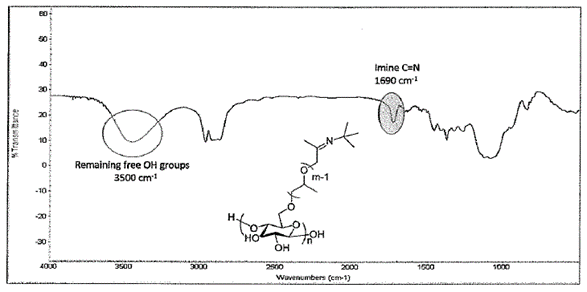THE CHALLENGE
Aqueous solubility and controllable release are essential for bioactive compounds. In the case of oral drug delivery, poor aqueous solubility of a drug can lead to low bioavailability. For poorly bioavailable drugs, higher doses are required to achieve a therapeutic concentration in systemic circulation. This can in turn have negative consequences for the patient like higher drug costs and increased side effects. Therefore improvements in aqueous solubility and controllable release can lead to oral drug delivery with improved efficacy.
OUR SOLUTION
In collaboration with researchers from Purdue, Kevin Edgar and his team have developed a new process for selective oxidation of secondary alcohol on polysaccharide derivatives, in particular olig(hydroxypropyl)-substituted polysaccharides based on polysaccharides like cellulose or dextran. Products have ketone moieties at the termini of the oligo(hydroxypropyl) side chains. These ketone moieties wil permit formation of polymers loaded with active moieties (including for crop protection, drug delivery, nutraceuticals, and other bioactivities) that can be released with control over timing and location. Selective oxidation of polysaccharide derivatives can afford new materials with tremendous potential in fields as diverse as drug delivery, biodegradable polymers, degradable hydrogels, and many other applications.

Figure: FTIR spectrum of Ox-HPC-t-butylamine